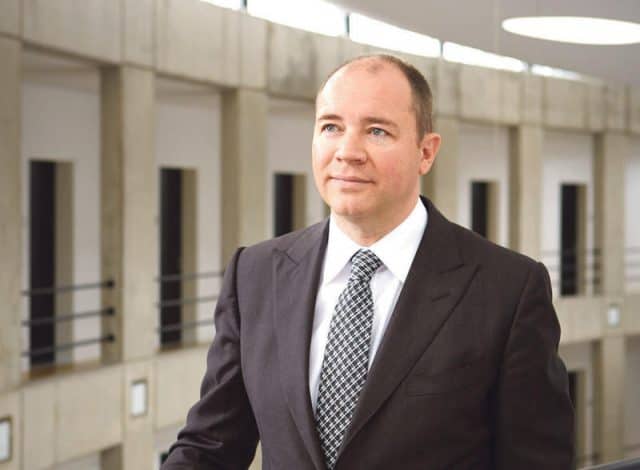
Dommermuth
The billionaire founder of United Internet, a Frankfurt based ISP with a 14% market share of Germany’s broadband market, has proposed the creation of a new jointly owned company to construct a nationwide fiber-to-the-home broadband network to improve German connectivity.
Ralph Dommermuth said German telecom leader Deutsche Telekom must be a decisive member of the alliance in a country where only 2.5% of homes are connected to fiber optic broadband. Dommermuth complained that the new government formed by Chancellor Angela Merkel only pledged €10-12 billion over the current parliamentary session to create what she calls a “Gigabit Society” by 2025. He believes that amount is completely inadequate.
In an interview with newspaper Welt am Sonntag, Dommermuth said Merkel’s government would contribute only a small fraction of the €80 billion he estimates is needed to wire up to 70% of the country with fiber optics.
German companies have already warned Germany’s economy was at risk from underinvestment in broadband, especially as business and transportation systems are increasingly powered by broadband networks.
 Deutsche Telekom (DT) is frequently blamed for the mediocrity of German broadband. Its CEO Tim Hoettges has been heavily criticized for his decision to embrace upgrading its existing copper-based DSL service with “vectoring” instead of rebuilding its network using fiber optics. Although vectoring can significantly improve the speed of DSL connections, critics say it is a technological dead-end and further upgrades are limited and costly.
Deutsche Telekom (DT) is frequently blamed for the mediocrity of German broadband. Its CEO Tim Hoettges has been heavily criticized for his decision to embrace upgrading its existing copper-based DSL service with “vectoring” instead of rebuilding its network using fiber optics. Although vectoring can significantly improve the speed of DSL connections, critics say it is a technological dead-end and further upgrades are limited and costly.
Hoetgges answers his critics by arguing Deutsche Telekom has spent more money on broadband — €5.4 billion — in the last year than all of its competitors put together.
Most ISPs in Germany are dependent on Deutsche Telekom to reach customers. United Internet, which does business under the 1&1 brand, pays DT for access to its DSL lines, over which it offers internet access.
Behind the controversy is what company ultimately controls Germany’s fiber optic telecom future. DT argues since it has spent the most money necessary to bring limited optical fiber connectivity to Germany, it should not have to share access to that network equally with its competitors. Hoettges said that would allow companies like United to profit from his company’s investments. To attract additional investment, DT wants control over the fiber optic network it is slowly building.
Dommermuth argues the country cannot wait the significant number of years it will take DT to expand that network on its own, which is why he proposes a consortium, with each member company paying a portion of the costs relative to its market share.


 Subscribe
Subscribe
We had our chance in Australia.. politics ruined it 🙁
Dear Germany take it from us Americans… do not and I mean do not go down that road. Look at our mess in the internet market and ask yourself is a private, public venture a good idea. Granted more then likely the venture will be heavily regulated, but I ask Germany a simple question. Do you have the financial means to do it yourself without corporate intervention? If the answer is yes then I suggest you do that and reap the rewards for your self. Still I am totally ignorant in their situation and am only basing it on the… Read more »